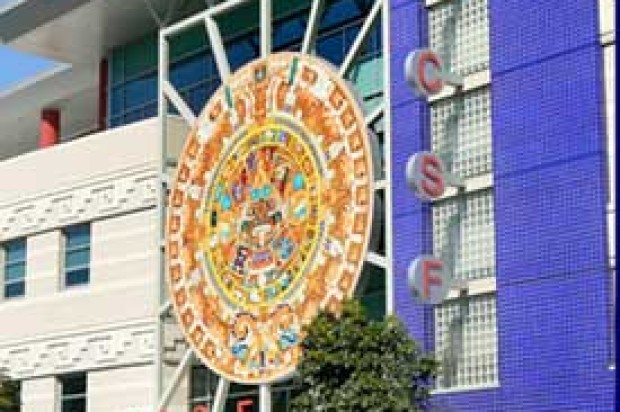
The commission that revoked City College of San Francisco’s accreditation last year has been inconsistent in sanctioning schools and applies sanctions at a higher rate than other accreditors, a state auditor’s report released today said.
The audit of the Accrediting Commission for Community and Junior Colleges was requested last year by state Sen. Jim Beall, D-San Jose, after the commission revoked City College’s accreditation effective July 31 of this year.
The audit found that the commission has applied its accreditation process inconsistently.
After placing the college on “show cause” status to fix deficiencies, it revoked its accreditation after only one year, while allowing 15 other colleges two years to fix deficiencies and another six institutions up to five years, according to the report.
Earlier this month, the ACCJC did introduce a route that would give CCSF an extra year to reach compliance with the deficiencies found by the commission.
The auditor’s report also found that the commission applied sanctions at a much higher rate than other accrediting commissions, taking action against 269 institutions for noncompliance between 2009 and 2013 — a rate of 53 percent.
The other six regional accreditors together had a sanction rate of just over 12 percent over the same time period, according to the report.
The audit noted several possible reasons for this discrepancy, including that the ACCJC accredits institutions on a six-year cycle in contrast to the seven- to 10-year cycle practiced by other accreditors.
A survey conducted by the auditor’s office found that 88 percent of college executives governed by the ACCJC found the commission’s recommendations reasonable, the report said.
But it also noted that other accrediting agencies offered feedback for self-study and an opportunity to fix problems before a comprehensive evaluation that the ACCJC does not.
A lack of transparency was another problem with the commission found by the auditor’s report, criticizing that most of the commission’s accreditation decisions happened in closed meetings.
While no law requires the agency to hold open meetings, the report noted, many of the colleges it oversees are public institutions that are required to do so.
While the commission is currently the only institution authorized to accredit community and junior colleges in California, the auditor’s report suggested that there could be legal means to add accrediting institutions in California.
In a response letter, California Community Colleges Deputy Chancellor Erik Skinner said that while generally agreeing with the report’s findings, he thinks that the state should not seek to add new accrediting institutions as it could apply different rules to different colleges.
In her own response letter, ACCJC President Barbara Beno said that Auditor Elaine Howe and her team were not competent to perform the audit.
“There is no indication from the report that any of the members of the team had the experience or competence to express opinions regarding matters of accreditation, matters involving the decisions that ACCJC made that relate to CCSF, or about legal matters that involve federal law and regulations,” Beno wrote.
While saying that her agency could not comment directly on matters related to CCSF because of pending litigation, Beno wrote that the state auditor found no violations of state or federal law and that the audit was “factually inaccurate” and “incomplete.”
The auditor’s office provided a written response to Beno saying that the ACCJC had been provided ample opportunity to respond to the report before it was published but never brought up any inaccuracies.
Any incompleteness in the report, according to the auditor’s office, was the fault of the ACCJC itself.
“It is ironic that the commission at once accuses the state auditor of publishing an incomplete report when it is the commission’s own refusal to provide certain information that required our office to disclose the inability to report more fully on certain issues,” the response said.
It also said that Beno herself praised the auditor’s staff’s professionalism and thoroughness during meetings, making the allegations of incompetence surprising.
The California Federation of Teachers said in a statement today that the auditor’s reports confirmed many of the union’s criticisms of the commission.
“We are pleased that the findings of the Auditor agree with and reinforce our criticisms of this out of control and destructive agency,” CFT President Joshua Pechthalt said.
“We can’t afford another vendetta by the ACCJC, which has already severely and needlessly disrupted the ability of one of the most important colleges in the state to deliver its education to thousands of students,” Pechthalt said.
Scott Morris, Bay City News









